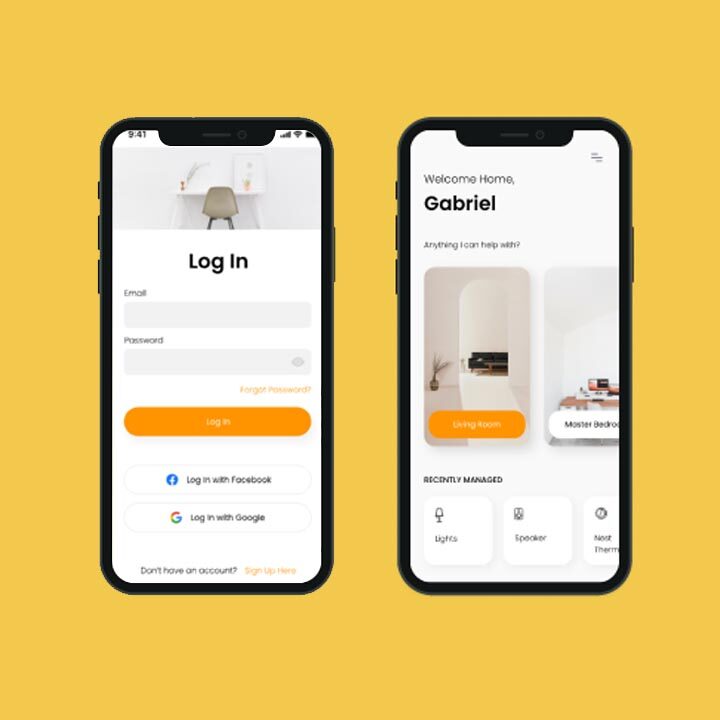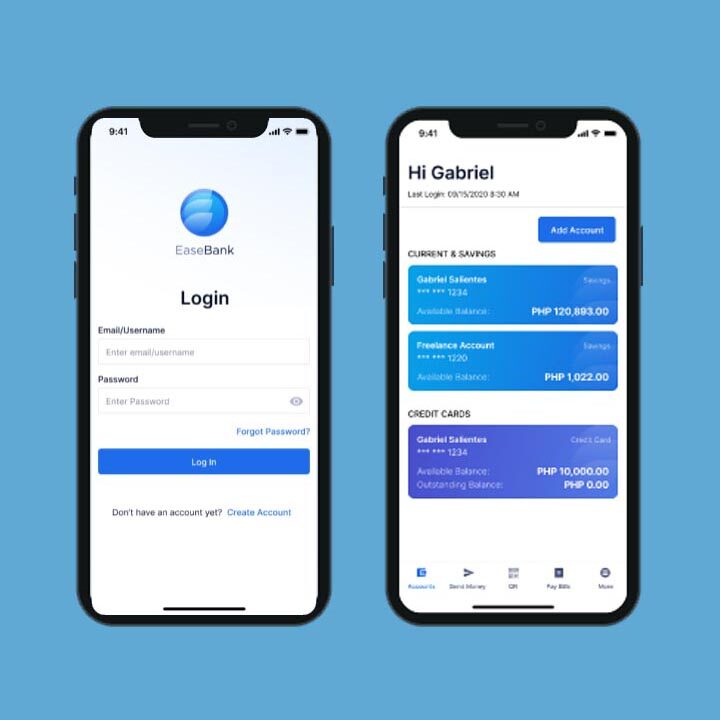How to Develop a Mobile App from scratch?


Trying to figure out how to develop a mobile app on your own can be overwhelming. There are so many steps, and it seems like everyone has a different opinion on the best way to do it. We’re here to show you how to develop a mobile app from scratch, so read on!
What is the process of developing a mobile app from scratch?
Developing a mobile app can be broken down into five basic steps: ideation, design, development, testing, and release. Let’s explore these steps in more detail.
1. Ideation: This is where you develop the idea for your app. It’s essential to have a clear vision of what you want your app to achieve. Once you have the idea, it’s time to start sketching the design.
2. Design: The design phase is about creating your app’s user interface and experience. This is where you’ll need to think about how users will interact with your app and what features it will need. Once you have the design completed, it’s time to start development.
3. Development: The development phase is where you’ll build the app. This will involve coding and programming your app so that it works correctly. Once the development is complete, it’s time to test your app to ensure everything works as intended.
4. Testing: The testing phase is essential to ensure that your app is free of bugs or errors. This can be done by a Mobile app developer who will run the app through a series of tests on different devices. Once the app passes all the tests, it’s ready to release.
5. Release: The final step is releasing your app to the public. It can be done through the App Store or Google Play. Once your app is released, it’s essential to monitor it and ensure it’s working correctly. If you find any bugs, you’ll need to fix them as soon as possible.
Developing a mobile app from scratch can be lengthy and complex, but it’s possible if you have any ideas and are willing to do the hard work. If you follow these steps, you’ll be well on creating a successful app.
The key players involved in the Mobile Development process


When it comes to developing mobile apps, many different stakeholders are involved in the process. They have a specific role in creating a successful app, from app designers and developers to project managers and marketers. In this article, we’ll look at these key players and what they do during the mobile development process.
- Designers: The first step in creating a successful app is developing a great design. This is where the designers come in. They are in charge of creating the overall look and feel of the app and its user interface (UI). To create a beautiful and intuitive UI, designers need to have a strong understanding of human-computer interaction (HCI).
- Developers: Once the designers have created the UI, it’s up to the developers to bring it to life. They are responsible for coding the app and ensuring it works correctly on all devices. They need a strong understanding of the various mobile operating systems (iOS, Android, Windows Phone, etc.) and a good grasp of the different coding languages (Objective-C, Java, C#, etc.).
- Project managers: Once the app is designed and developed, it’s up to the project manager to ensure everything is on track. They are responsible for setting deadlines and ensuring everyone works towards the same goal. They must have a strong understanding of the mobile development process and excellent communication and organizational skills.
- Marketers: Once the app is launched, it’s up to the marketers to get people to download and use it. They are responsible for creating a buzz around the app and ensuring that it’s visible to as many people as possible. They need a strong understanding of online marketing and a good network of contacts.
Of course, many other people are involved in the process, such as quality assurance testers and customer support reps. However, these are the people who have the most significant impact on the success of an app.
It’s essential to understand each player’s role. By doing so, you’ll be able to put together a team of people who are all experts in their respective fields and who can help you create a successful app.
How to choose the right platform and development tools


The options can be overwhelming. With so many platforms and development tools available, how do you choose the right one for your project? You can consider these things to help you get started.
1. Define your goals and objectives.
Before you even start looking at platforms and tools, you must clearly understand what you want to achieve with your app. What are your goals and objectives? What problem are you trying to solve? After this, you can start looking for a platform to help you achieve them.
2. Research your options.
There are several platforms and development tools out there, so it’s essential to do your research. What are the popular platforms? What are the features and limitations of each one? How much will it cost to develop on each platform?
3. Consider your audience.
Who is your target audience? What kind of devices do they use? What operating system do they prefer? These are factors to consider when choosing a platform for your app. In addition, you want to ensure you select a platform compatible with your target audience’s devices.
4. Understand the app store guidelines.
If you’re planning on releasing your app on an app store, it’s important to familiarize yourself with the guidelines of that particular store. Each store has different app requirements, so you’ll need to make sure your app meets all the requirements before submitting it.
5. Choose a platform that offers support.
Developing an app can be challenging, so it’s important to choose a platform that offers good support in case of any problems. Most platforms have online forums where you can ask questions and get help from other developers.
6. Consider your budget.
Platforms and tools can vary widely in price, so you’ll need to consider your budget when making your decision. Sometimes, paying more for a platform that offers better support or features may be worth paying more.
7. Don’t try to do everything yourself.
If you’re new to mobile app development, it’s important to realize that you don’t have to do everything yourself. There are several great resources out there, such as online tutorials and books, that can help you learn the ropes. And if you find it hard, don’t hesitate to ask for help from other developers.
8. Consider using a framework.
If you want to save time, you may want to consider using a framework. A framework is a pre-built platform that you can use to develop your app. Using it can cause you to save a lot of time and money and make the development process more manageable.
9. Test, test, test.
Before releasing your brand-new app to the public, it’s important to test it thoroughly. Make sure you test on all devices and try to find as many different ways to break your app as possible. You don’t want it to crash when someone tries to use it.
10. Get feedback from users.
Once you’ve released your app, getting users’ feedback is important. This can help you improve your app and make it more successful. There are several ways to get user feedback, such as online forums, social media, and review sites.
By following these tips, you can increase and improve your chances of success. And if you find it challenging, don’t hesitate to ask for help from other developers.
What are some things to avoid during the mobile app development process?
Developing a mobile app can be long and arduous, but staying focused on the end goal is essential. So, to help you make things a little bit easier, here are ten things to avoid during the mobile app development process.
1. Don’t become too attached to your ideas.
The mobile app development process is all about experimentation and trying new things. If you get too attached to your original ideas, you’ll never be able to try something new that could be even better.
2. Don’t underestimate the power of user feedback.
User feedback is essential in the mobile app development process. It’s the best way to gauge whether or not people enjoy using your app.
3. Don’t forget about marketing.
It’s just as important as developing the existing app. It would be best if you made sure that people know about your app and what it can do for them.
4. Don’t try to do everything yourself.
The mobile app development process is a team effort. Trying to do everything yourself will only lead to burnout and frustration.
5. Don’t get discouraged by setbacks.
Setbacks are inevitable in any development process. The key is not to get discouraged by them and to continue pushing forward.
6. Don’t lose sight of your budget.
It’s essential to stay within your budget during the mobile app development process. Otherwise, you’ll quickly run out of money and be forced to cut corners.
7. Don’t ignore your competition.
Keep a close eye on your competition and see what they’re doing right (and wrong). This will give you a better idea of positioning your app.
8. Don’t forget about post-launch maintenance.
Your new app is finished doesn’t mean your work is done. You’ll need to regularly update your app and add new features to keep users engaged.
9. Don’t forget about analytics.
Analytics are essential for understanding how people use your app and what areas need improvement.
10. Don’t get too discouraged by early failures.
It’s common for mobile apps to fail in the early stages. The key is to learn from your mistakes and keep moving forward.
Developing a mobile app can be long and arduous, but staying focused on the end goal is essential. By avoiding these mistakes, you’ll be able to focus on what’s important and create an app that people will love.
What metrics can you use to assess the efficacy of your app?


1. Track your app’s download numbers. It’s the most basic metric you can use to measure success. If your app isn’t being downloaded, it will not be successful. So keep an eye on your download numbers and compare them to your goals.
2. User engagement is another important metric to track. You want to know how often people are using your app and what they’re doing while they’re using it. Are they performing the actions you want them to take? Are they sticking around or quickly losing interest?
3. Another metric to track is conversion rates. If you have a goal for your app, such as getting people to sign up for a subscription or make a purchase, you’ll want to track how often users are taking that action.
4. Another key metric is customer satisfaction. You can measure this in several ways, but one option is simply asking your users how they feel about your app. You can also look at review scores and ratings to understand how users think.
5. Finally, you’ll want to keep an eye on your app’s financial performance. This includes things like revenue and profit margins. If your app isn’t generating enough revenue, it will not be successful in the long run.
By tracking these important metrics, you’ll get a better idea of whether or not your app is on track for success. If you’re not meeting your desired goals, you can make changes to improve your performance. In addition, by tracking the right data, you’ll be able to make better decisions about your app’s future.
We salute you if you feel motivated and excited to develop a mobile app from scratch! It’s not an easy-peasy process, but it can be gratifying. May this guide have helped give you a better idea of what’s involved in the process. So, what are your thoughts on developing a mobile app?







